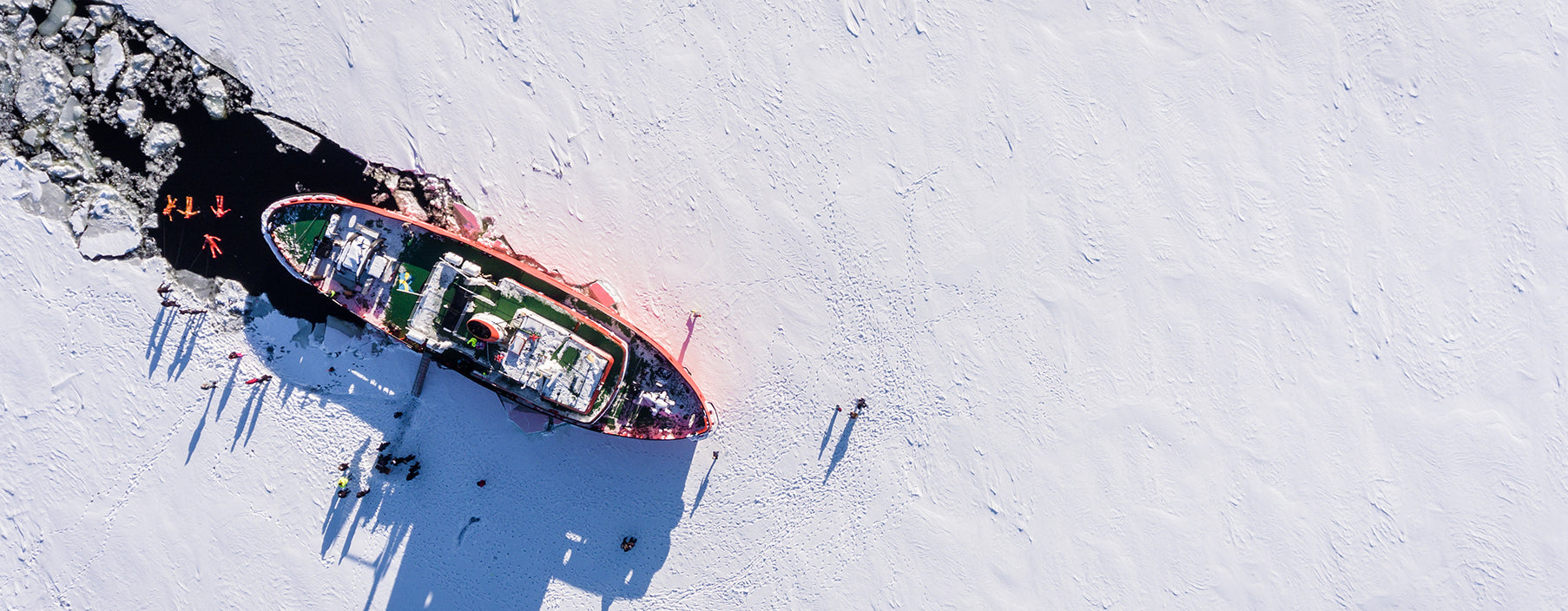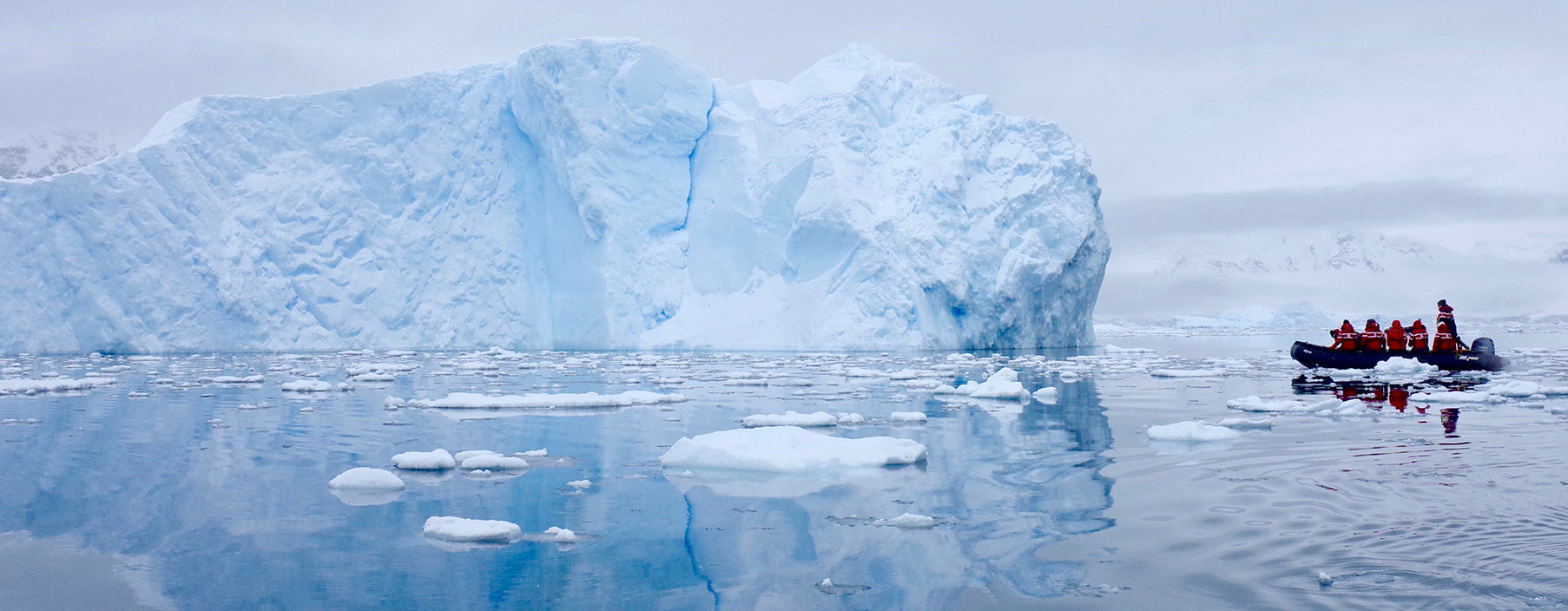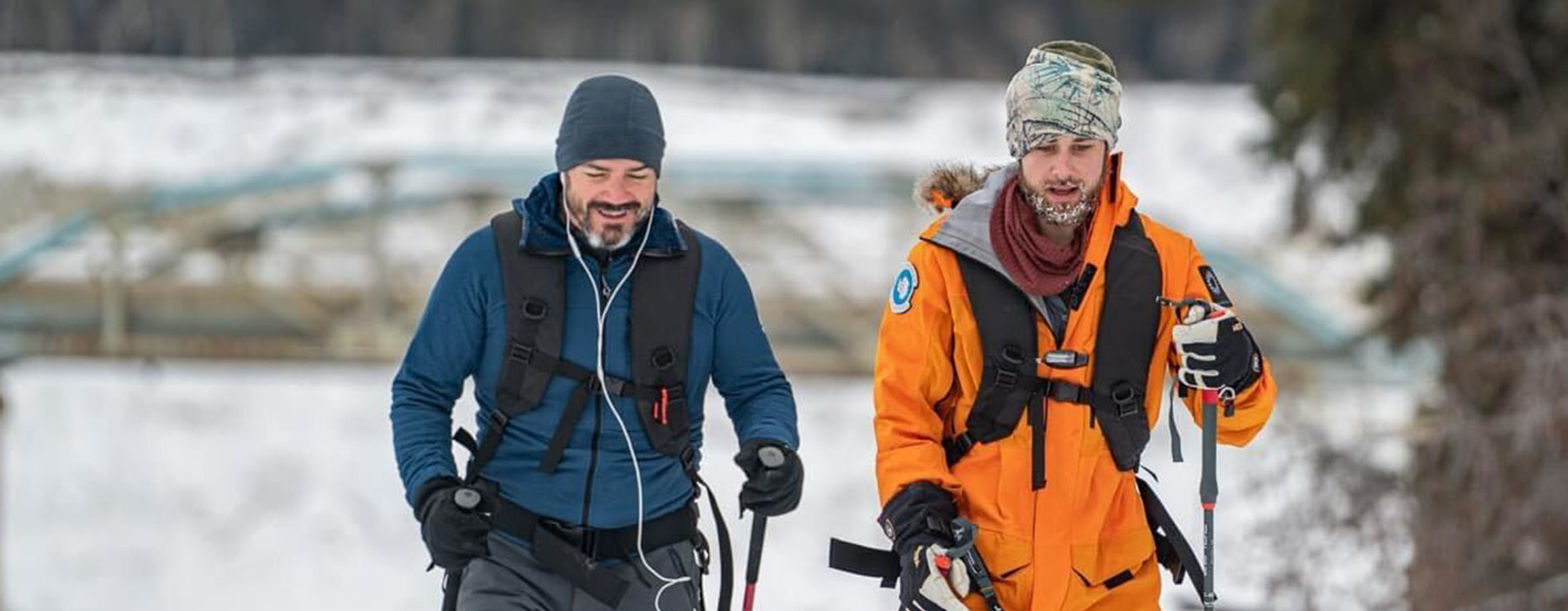
SHACKLETON MEDAL // MEET KLAUS DODDS
Klaus Dodds, Executive Dean for the School of Life Sciences and the Environment at the Royal Holloway, has been a judge for the Shackleton medal for the last two years. Here he talks to Rachel Halliburton about why the impact of what happens in the Arctic and Antarctic resonates around the world.

Just one month in the geopolitics of the Arctic and Antarctic could easily rival the plot of any James Bond movie. In the weeks before Shackleton judge, geopolitician Klaus Dodds, sits down to talk about his lifelong passion for the poles, newspapers have reported variously on new developments for Chinese satellites in the Antarctic, Australian underwater robots that can take whale biopsies, and controversy surrounding a Russian ship potentially exploring for gas and oil. Dodds is a prolific writer - his most recent book, the critically acclaimed Border Wars, has received particular attention because of the way its insights anticipated the Russia/Ukraine conflict. Yet it’s perhaps no coincidence that he is also co-author of Geographies, Genders, and Geopolitics of James Bond, a work which scrutinises the different frameworks through which we perceive a figure whose values might well benefit from being both shaken and stirred.
CLOSELY OBSERVED DRONES

The hostile elements at the poles inevitably mean that technological advance has been a huge game changer in what can be achieved, whether in science, exploration or more sinister pursuits. Dodds cites ‘drone technology’ as the one that most fascinates him, ‘it was, after all, drones that helped find Ernest Shackleton’s Endurance at the start of last year, but we’re also seeing scientists sending drones underneath glaciers and ice-sheets to better understand the evolving complexities of ocean-ice dynamics. We’re also, of course, seeing how they can be used for more military purposes. Their defensive and offensive capabilities are extraordinary, which means that the drones themselves can sometimes become points of contention. I’m thinking in particular of the incident when the Chinese seized an American drone in the South China Sea. They eventually returned it but little incidents like this can trigger something much more profound. People talk a lot about grey zone activities – and both the Arctic and Antarctic are places where technology that’s apparently being used for scientific ends can be deployed for more aggressive purposes.’
GREAT POWERS, GREAT GAMES

Despite this, Dodds counsels against becoming so fixated on Chinese and indeed Russian agendas that we fail to examine the interests of other powers. Talking about the controversy that has surrounded China’s announcement that it will be expanding its satellite operation by building new ground station facilities in the Antarctic, he says, ‘This demonstrates our perennial fixation on China’s “Great Power” status - which means that whatever it does, it invites a degree of scrutiny that we perhaps don’t have for other parties. China’s not the first to establish ground stations that can be used for global communications or, for example, space monitoring. Norway, for example, has a similar station that doesn’t get nearly the same level of attention.’
STAMPING GROUND

Dodds first became fascinated by the poles, he reveals, as a small boy collecting stamps. ‘I was a complete fanatic and took great pleasure especially in collecting stamps from beguilingly remote locations like the Falkland Islands Dependencies, which is what the British called them before they were divided into British Antarctic Territory, the Falkland Islands, and South Georgia and the South Sandwich Islands. I was also very affected by the Falklands War - I was in my early teens when it broke out and I was both horrified and fascinated by these two countries [Britain and Argentina] coming to blows over islands that are often described as a gateway to the Antarctic. I’m fascinated too by extraordinary places that simultaneously give us insights into the ordinary.’
He describes the circumstances in which he first went to the Antarctic as ‘an incredible piece of timing and happenstance. I received a phone call from a man with a Canadian accent who worked for Marine Expeditions Inc and said, “I’ve seen your book that’s been published on the Antarctic. A guest lecturer has just dropped out of a trip I’m organising and I wondered if you’d replace him. The only downside is that you need to be on the plane in under a week.”’
Dodds needed little persuading - and after speedy negotiations with his university and several plane trips he found himself on board, ‘there were only about 30 passengers but it was an extraordinary, fun experience.’ Since then he’s travelled to the Antarctic five times in total. On his most recent trip he was surprised by how popular ‘heli-skiing was as an activity– as opposed to what had been common in the 1990s for visitors to contemplate in a more sedate way the extraordinary landscapes and seascapes in front of them.’
THE CRYOSPHERE

One of his jobs as a geopolitician is to connect what’s happening in the Arctic and Antarctic with what’s going on in the rest of the world. We talk briefly about a passage in Border Wars in which he describes the highest battlefield in the world, the Siachen glacier in the Karakoram Mountains on the northern border of India and what is now southern China. There is also a border between China and Pakistan, so both Indian and Pakistani soldiers are posted there to prevent Chinese encroachment. It has always been a wretched posting, but in recent years, though the Siachen glacier is melting slower than other glaciers in the Himalayan range, climate change has seen soldiers being wiped out by ice avalanches and falling into crevasses that have increased in number because of rising temperatures.
‘Many glaciers cross international boundaries,’ he says, ‘and if you’re lucky, like in the European Alps, you might have a convention to help govern and regulate those shared spaces and if you’re unlucky you’ll end up in places like the Siachen glacier where there have been long standing border tensions.’ Glaciers play many roles in geopolitics, not least because like the Arctic and Arctic, they are part of the cryosphere, playing a key role in reflecting heat from the sun back into space which is essential to regulating the planet’s temperature. They are also key to the water security of several countries, ‘When glaciers retreat, melt water is affected, and then river systems don't get replenished in the way that we would expect,’ he says. ‘And then that has knock on consequences for food security. It has knock on consequences for ecological sustainability.
RUSSIA AND UKRAINE
The conflict between Russia and Ukraine has reverberated at several levels across the globe, so it’s not a huge surprise that it has made its impact on the poles. At the start of February it was reported that Ukraine had destroyed a rare Russian Tor-M2DT surface-to-air missile system designed for use in the Arctic. ‘For 30 years, we've been celebrating the idea of circumpolar space as a place for collaboration, for internationalism, for the articulation of goodwill,’ Dodds declares. ‘Now we're having to be more hesitant. Because of the war the Arctic Council has paused its activities. This obviously has dire consequences. Politically 50% of the Arctic is Russia. This is something we’ll always be dealing with. But with the prospect of Sweden and Finland joining NATO, we’re going to have a very different Arctic space, in which seven out of the eight Arctic states will be at some point, NATO members, subject to any Turkish objections being overcome, which I think they will be.
‘Whatever happens, there’s no question it's going to become a more congested and competitive space. And we're already seeing the impact of that, in, for example, harassment over satellite communications, border incidents, potential sabotage of underwater infrastructure. I would predict more Russian mischief making, not least around Svalbard, which has long been seen by NATO as a flashpoint. I think we'll also see, potentially, Russia and China continue with their strategic alliance, which could well pivot from an economic energy alliance into a strategic military alliance.’
THE IMPORTANCE OF CAMPAIGNING
Despite the onslaught of negative news at the poles, Dodds is insistent that there are glimmers of hope for the future. ‘Increasingly we're seeing a really interesting coalition of scientists, campaigners, artists and writers working along with indigenous peoples to tell different stories about the poles. So those stories aren’t isolated, but being, informed and enriched by different bodies of knowledge and experience. Take the question of ice - it's not just the little cube in your glass of water, it’s absolutely intrinsic to life. These different perspectives show how you really need to see these things as a very, very delicate, tapestry - you fiddle with one thing, and then there are tipping points and cascading consequences.’
‘One of the things I admire about the work of Heidi Sevestre, the first Shackleton medal holder,’ he continues, ‘is her very, very strong public campaigning voice. She has been very clear that we need to talk about crisis and emergency. Sometimes the figures about climate change don’t cut through the white noise, but when serious scientists like her are reporting that parts of Svalbard are heating up at seven times the global average that’s got to resonate. If that doesn’t wake people up, what will?’
SHACKLETON MEDAL
Find out more about the 2023 Shackleton Medal for the Protection of the Polar Regions, the judging panel and the previous winner, Dr Heidi Sevestre HERE.
Nominate either yourself or the person that you believe should win the 2023 Shackleton Medal for the Protection of the Polar Regions HERE.


